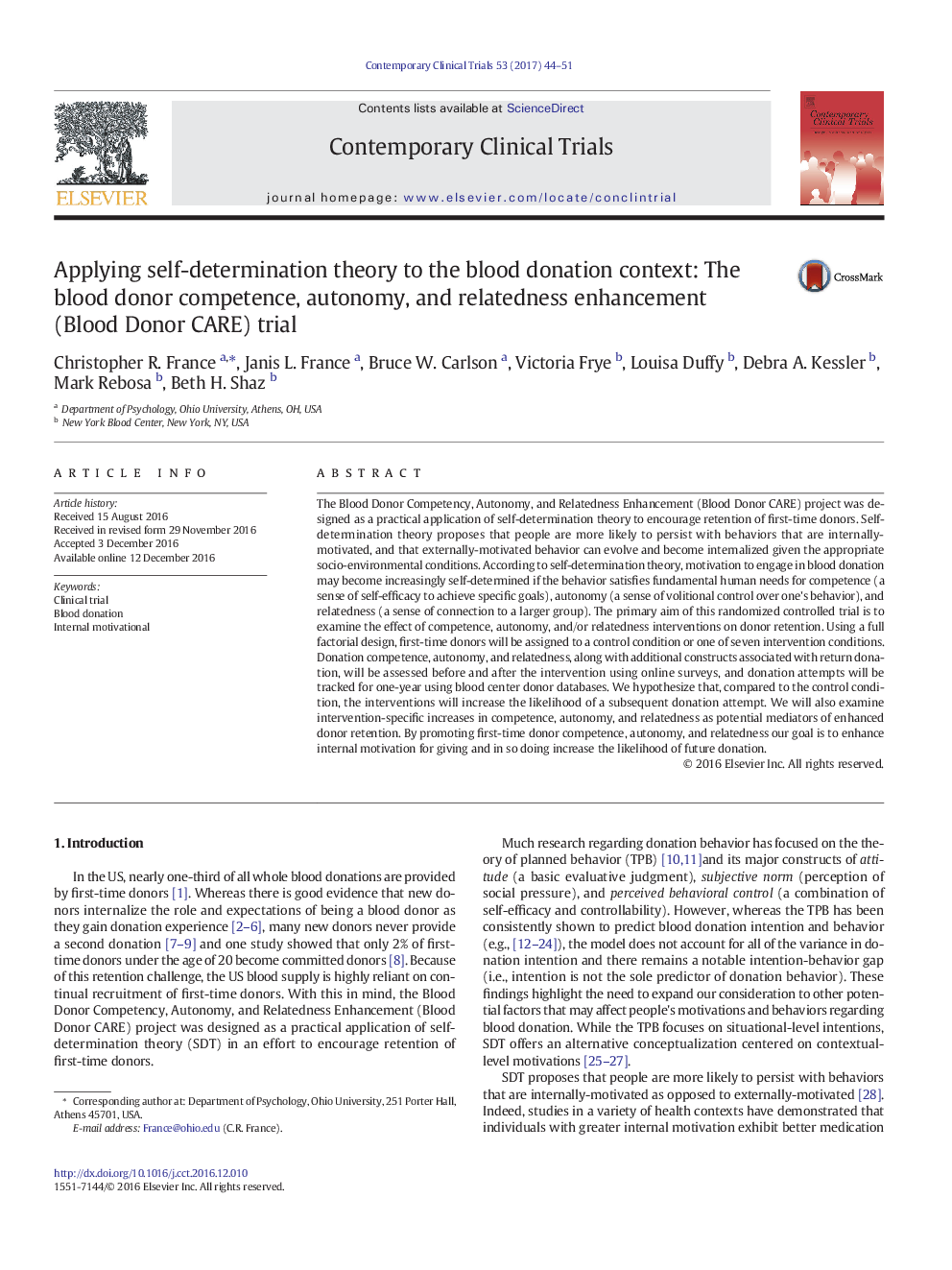ترجمه فارسی عنوان مقاله
اعمال نظریه خودمراقبتی به چارچوب اهدای خون: آزمودن اهدای اهداکنندگان خون، خودمختاری و افزایش وابستگی (مراقبت خون اهداکننده)
عنوان انگلیسی
Applying self-determination theory to the blood donation context: The blood donor competence, autonomy, and relatedness enhancement (Blood Donor CARE) trial
| کد مقاله | سال انتشار | تعداد صفحات مقاله انگلیسی |
|---|---|---|
| 121535 | 2017 | 8 صفحه PDF |
منبع

Publisher : Elsevier - Science Direct (الزویر - ساینس دایرکت)
Journal : Contemporary Clinical Trials, Volume 53, February 2017, Pages 44-51
ترجمه کلمات کلیدی
کارازمایی بالینی، اهدای خون، انگیزه داخلی
کلمات کلیدی انگلیسی
Clinical trial; Blood donation; Internal motivational;

